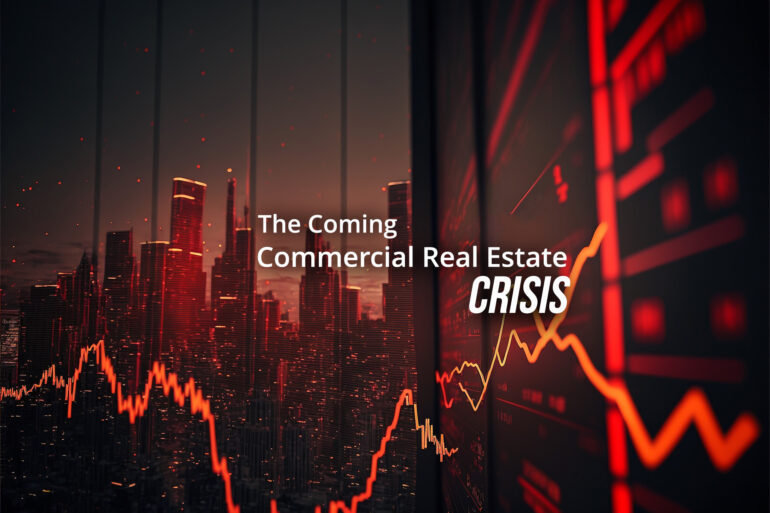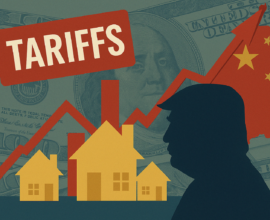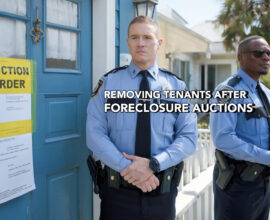Is the Commercial Real Estate Crisis Going to be Worse than Predicted?
After facing eviction freezes, a global pandemic, and a financial crash, what could be next for investors? All those empty offices scattered around the United States. That’s what!
Commercial Real Estate Bust?
From property owners to landlords, property managers, and even local government tax revenue, we’re in for a collective belt-tightening.
Investors and economists are in a frenzy about the state of the commercial real estate market, and the recent problems with Silicon Valley Bank and Signature Bank are not helping. This isn’t a new problem; however, it is one that some thought wouldn’t be as bad as it is.
The problems are just beginning. As loans mature over the next few years, experts believe these office spaces just won’t serve the purpose they once did. Defaulting, vacancies, and delinquent loans are all on their way to becoming much more common, but what does that mean for local economies?
Unfortunately, the effects are expected to spread. From property owners to landlords, property managers, and even local government tax revenue, we’re in for a collective belt-tightening.
We could be facing a standstill. With tighter regulations on lending for commercial properties piled on top of that, values could fall even further.
Bank Failures
Bank failures are usually a hint that something is changing within the economy. Typically, they are portents of what’s to come. According to this recent article, Rich Hill commented that even prior to the banks closing, it was going to be “a painful year” for the industry. Hill is the head of real estate strategy and research at the global investment management company Cohen & Steers.
Hill and Kevin Fagan, head of commercial real estate economic analysis at Moody’s Analytics, speak at length in the article about bank involvement in the commercial real estate sector. Ultimately, no one will be unaffected by this plummeting industry. Small banks and large banks both hold loans on these types of properties, as such, they are both at risk.
According to Hill, the commercial real estate market is a $20 trillion market in the US. In a recent report, Goldman Sachs further specified “lenders with less than $250 billion in assets account for roughly 80% of commercial real estate lending.”
In the above-mentioned Fortune article, Hill elaborated that commercial property values are likely to go down by 20% or more in the coming year. With that decrease in value also comes more difficulty in borrowing money for buying commercial property.
Lenders can’t just front money for a property if they don’t know what it will be worth next month. We could be facing a standstill. With tighter regulations on lending for commercial properties piled on top of that, values could fall even further.
With fewer employees in the office, companies are cutting their office space and some of their jobs. This means emptier buildings and an exacerbated situation.
Remote Work Revolution
Part of the problem is the rise of remote work.
Remote work has revolutionized the way companies operate around the world, and the US is no different. Even though many companies have implemented back-in-the-office or hybrid work situations, the transition back to office work that we once expected has simply not happened.
With fewer employees in the office, companies are cutting their office space and some of their jobs. This means emptier buildings and an exacerbated situation.
These are not simply the economic fluctuations we’re used to seeing, this crisis is in part due to post-COVID life including the work-from-home lifestyle.
Refinancing
Refinancing is also a serious problem. With vacancy rates on the rise and property values plummeting, refinancing a commercial real estate loan is far more complicated than it was four years ago.
In a recent article, Lisa Shalett, the chief investment officer for Morgan Stanley Wealth Management, expressed a bleak outlook for investors and lenders.
She said, “More than 50% of the $2.9 trillion in commercial mortgages will need to be renegotiated in the next 24 months when new lending rates are likely to be up by 350 to 450 basis points.”
This alongside the rates already being raised by the Federal Reserve to try to minimize inflation could spell disaster for commercial investors. Shalett goes on to detail vacancy rates closing in on a 20-year high, even higher than the Great Financial Crisis.
With what happened to SVB and SB last month, experts believe it is likely that there will be even more rate hikes on the way and stricter regulations for refinancing. Keeping that in mind, property values are falling, which means the loan-to-debt ratio that these investors once enjoyed is about to take a jump in the wrong direction.
While funneling more cash into the property to balance equity is one way to deal with the problem, it’s a band-aid in the grand scheme of things. These are not simply the economic fluctuations we’re used to seeing, this crisis is in part due to post-COVID life including the work-from-home lifestyle.
With the rise of work-from-home culture, many flocked to Florida and followed their dreams to live where they’ve always wanted.
Office Vacancy Increases
According to Cushman & Wakefield’s (a global real estate firm) recent report, hundreds of millions of square feet of office space are predicted to go empty as a direct result of work-from-home and hybrid work structures. As much as 330 million square feet to be exact. If you add that up to the other office space that will go empty for other typical reasons, you’re looking at one-billion square feet of empty space.
What does that mean for you, the savvy investor? Now is not the time to invest in office space. In fact, with the regulations tightening on the entire commercial sector, it might be a good time to explore other avenues. Check out these articles about 11 opportunities to expand your real estate business and how to plan your investment strategy for 2023.
COVID has changed a lot about our lives and the way we invest in real estate, including where people want to live. With the rise of work-from-home culture, many flocked to Florida and followed their dreams to live where they’ve always wanted.
After dealing with tenants skipping rent during the shutdown, the Omicron panic in the market, and this current plummet in the commercial real estate market, it hardly gives us time to catch our breath, but you’ve dealt with everything else so far, and even if the experts are raising a panic, you must figure out what you are going to do next. So, what will it be?
Is All Hope Lost?
Commercial real estate may change immensely over the coming years, but office buildings’ popularity seems to be disappearing. In New York, some of them have been refitted as residential housing. While this does alarm government officials of potentially lost tax revenue, it could mean a pivot for the savvy real estate investor. By taking a closer look at buildings with amenities, adapting them to residential could put you one step ahead.
Experts are always more than happy to sound the alarms, but the truth is that we will have to wait and see. Rates could go up again. Regulations could get even tighter. Or they may not. There is a large storm cloud looming on our horizon, but we have a little time to grab our umbrellas and get ready for the worst of it.








